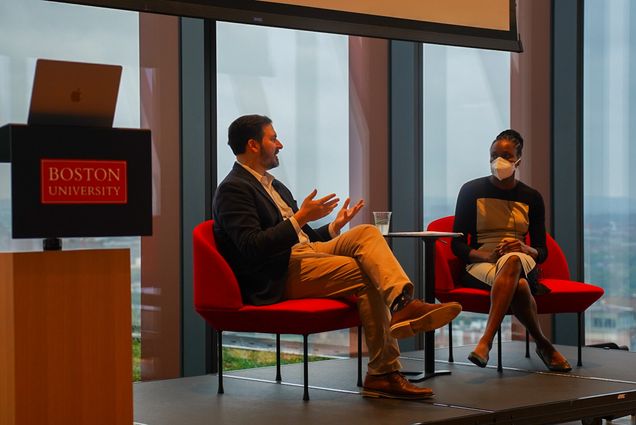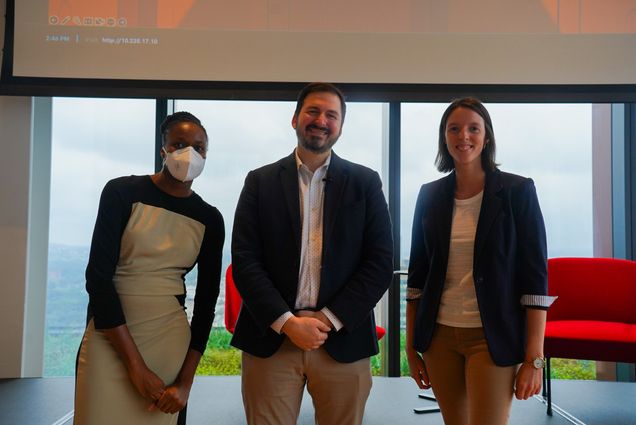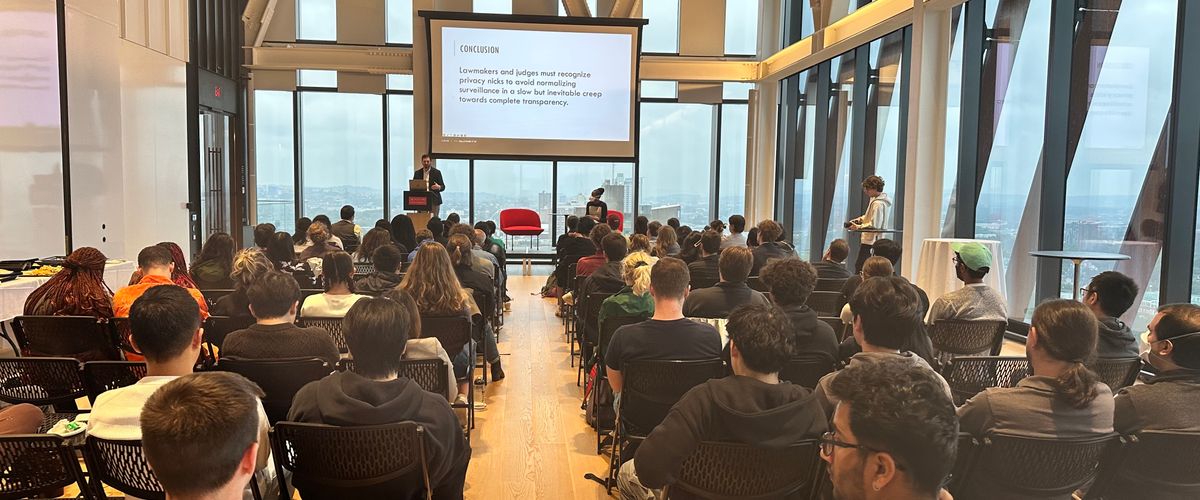The Case Against Surveillance: Social Justice for Data Science Roundup
BU Questrom School of Business' Prof. Woodrow Hartzog argues that policymakers should act to protect personal privacy amid an onslaught of technological innovations.
 Closed-circuit TV cameras that monitor passersby. Doorbell cameras that record package deliveries and front-stoop visitors. Facial recognition systems that confirm travelers’ identities at the airport, or children’s attendance at summer camp. Fitness apps on phones and watches that monitor users’ movements to record healthy (or sedentary) trends.
Closed-circuit TV cameras that monitor passersby. Doorbell cameras that record package deliveries and front-stoop visitors. Facial recognition systems that confirm travelers’ identities at the airport, or children’s attendance at summer camp. Fitness apps on phones and watches that monitor users’ movements to record healthy (or sedentary) trends.
As each of these innovations enter our routines, we grow accustomed to them, noted Woodrow Hartzog, Professor of Law and Class of 1960 Scholar, BU School of Law. But while the technologies deliver benefits like security and convenience, they also contribute through each video clipped or data point collected to a loss of personal privacy. Taken together, these “privacy nicks,” as Hartzog called them, will lead to the inevitable demise of public and private spaces where people can live unburdened by the power of businesses or governments to collect information about them – unless policymakers enact laws and regulations to protect the privacy rights of individuals and groups.
 Hartzog’s September 25 presentation, “The Case Against Surveillance,” was the first in a series hosted by the Faculty of Computing and Data Sciences. The Social Justice for Data Science Lecture Series, developed by Ngozi Okidegbe, Moorman-Simon Interdisciplinary Career Development Assistant Professor of Computing & Data Sciences and Associate Professor of Law, and Allison McDonald, Assistant Professor of Computing & Data Sciences, examines the ways data science operates to advance, transform, and hinder justice-oriented movements by underrepresented and politically marginalized communities in different areas of life, and draw lessons that can help reorient the field of data science toward justice.
Hartzog’s September 25 presentation, “The Case Against Surveillance,” was the first in a series hosted by the Faculty of Computing and Data Sciences. The Social Justice for Data Science Lecture Series, developed by Ngozi Okidegbe, Moorman-Simon Interdisciplinary Career Development Assistant Professor of Computing & Data Sciences and Associate Professor of Law, and Allison McDonald, Assistant Professor of Computing & Data Sciences, examines the ways data science operates to advance, transform, and hinder justice-oriented movements by underrepresented and politically marginalized communities in different areas of life, and draw lessons that can help reorient the field of data science toward justice.
In his lecture, Hartzog noted that policy makers tend to focus their efforts on what they consider larger privacy invasions – what he terms “privacy chops.” Unfortunately, this approach ignores a social justice reality: “The thing about nicks and chops that's important to understand is that they are distributed unevenly typically, not exclusively along lines of racial, gender, sexual identity, and ability lines. In other words, one person's nick might be another person's chop, either directly or indirectly, depending on their identities and how they are situated,” he said.
To address these holes in privacy protections, Hartzog advocated three policymaking moves: framing laws that consider the collective impact of surveillance on society, in addition to existing rules centered on individual rights; regulating the design of technologies to prohibit devices and software that are deceptive, such as spyware or hidden cameras; and banning technologies that threaten privacy, including facial recognition.
Hartzog acknowledges these recommendations, articulated with co-authors Evan Selinger of the Rochester Institute of Technology, and Johanna Gunawan of Northeastern University in a paper forthcoming in 2024 in the Washington University Law Review, will be politically difficult to implement. But the stakes are too high for inaction, he said.
“One of the most problematic aspects of society becoming acclimated to privacy nicks is that we become unable to fully appreciate how our autonomy and respect for our dignity is being routinely violated,” he said. “Lawmakers must not allow society to grow ever more alienated from appreciating the good that privacy offers without engaging in the oversight required to protect our fundamental liberties.”
Learn more about the Social Justice for Data Science 2023 speaker series.
Michael S. Goldberg, CDS Contributor
